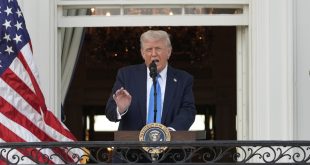Gilgit: Rising inflation in Pakistan has become a cause of trouble for the common people as well as the government. The prices of food items are skyrocketing due to which there is a lot of anger among the people. But instead of applying ointment on the wound, the government is trying to sprinkle salt on it. Pakistan’s Federal Minister Amin Gandapur recently made such a statement regarding inflation, which has disappointed the people more
In the Government of Pakistan- Baltistan Affairs Minister Amin Gandapur, while addressing a public meeting, appealed to the people to eat less. He said that can’t we sacrifice so much for the country. If I add 100 grains of sugar to the tea and if I add 9 less grains, will the tea become less sweet? If I eat a hundred bites of bread, can I not eat less than 9 bites of bread?
The minister further said that if there is 9 percent inflation, then can I not sacrifice so much for my community, my children. He said that for the freedom of Pakistan and to save our children from slavery, we have to make sacrifices. Now you guys have to take this decision. The minister has given this statement on Wednesday but now it has become a topic of discussion on social media and people are criticizing him fiercely.
This is not the first time such rhetoric has been made by leaders in Pakistan. Former Prime Minister Nawaz Sharif has also advised the people of Pakistan to eat less bread. Apart from this, a PTI leader Riyaz Fatyana also made a statement similar to Amin Gandapur.
Controlling rising inflation has become a big challenge in the neighboring country of Pakistan. Prime Minister Imran Khan held a meeting last month and brainstormed on controlling the prices of food items. Apart from this, the IMF has also warned Pakistan that the situation there is very worrying, although the government is taking the right steps in this direction.
According to government data, the prices of consumer items in Pakistan have touched a new record of increase in the month of September. The reason for this is inflation, which has increased from 8.4 percent to 9 percent compared to August.
 Indian Thought Latest News & Views
Indian Thought Latest News & Views



